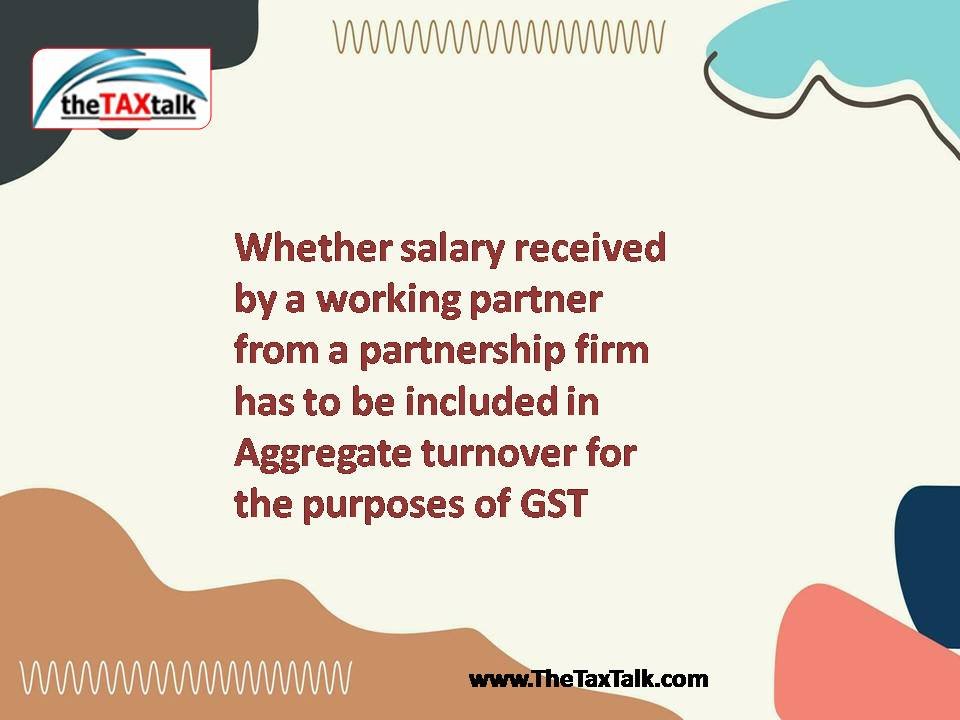![]()
Whether salary received by a working partner from a partnership firm has to be included in Aggregate turnover for the purposes of GST
Karnataka AAR in the case of Anil Kumar Agarwal held as follows:-
The following supplies form part of aggregate turnover:
1. Interest income received from various sources such as interest from loans, advances, fixed deposits, debentures, post office deposits. National Savings Certificates, provident fund account, Public Provident Fund and National Pension
2. Remuneration received as a non-executive director
3. Rental income from commercial property
4. Rental income from residential property
The following supplies do not form part of aggregate turnover:
1. Salary received by a working partner from a partnership firm
2. Share of profits received by a partner from a partnership firm
3. Remuneration received by an executive director of a limited company
4. Dividend on shares, capital gains or loss from sale of sharess
5. Maturity proceeds of life insurance policies
6. Remuneration received by an executive director of a company
The ruling holds that salary of a partner from a firm is to be excluded from aggregate turnover on the basis that the same constitutes supply of services by an employee to an employer and is thus outside the purview of GST vide Para 1 of Schedule III to the CGST Act.
In a partnership firm, it would be difficult to deduce the partnership deed to that of an employer employee relationship, since the firm does not have any identity separate from that of its partners and one partner acts as an agent for the other.
Section 13(a) of the Indian Partnership Act, 1932 provides that subject to contract between the partners, a partner is not entitled to receive any remuneration for taking part in the conduct of the business.
In the absence of any contractual terms in the deed, no partner is entitled to receive any remuneration in addition to share of profit.
This is not a typical condition of employer employee relationship as the prime motive of an employee serving an employer is to obtain remuneration as a matter of right.
Hence the stand of AAR, seems quite contentious and litigative.
Now, let us see what the future unfolds.

